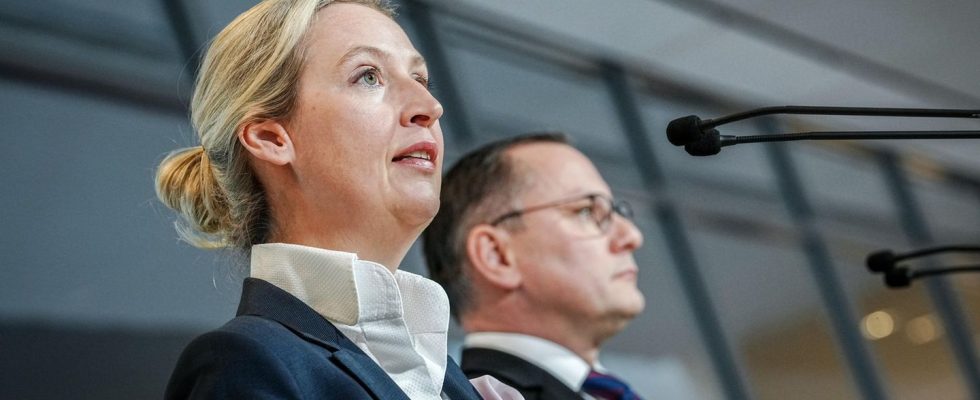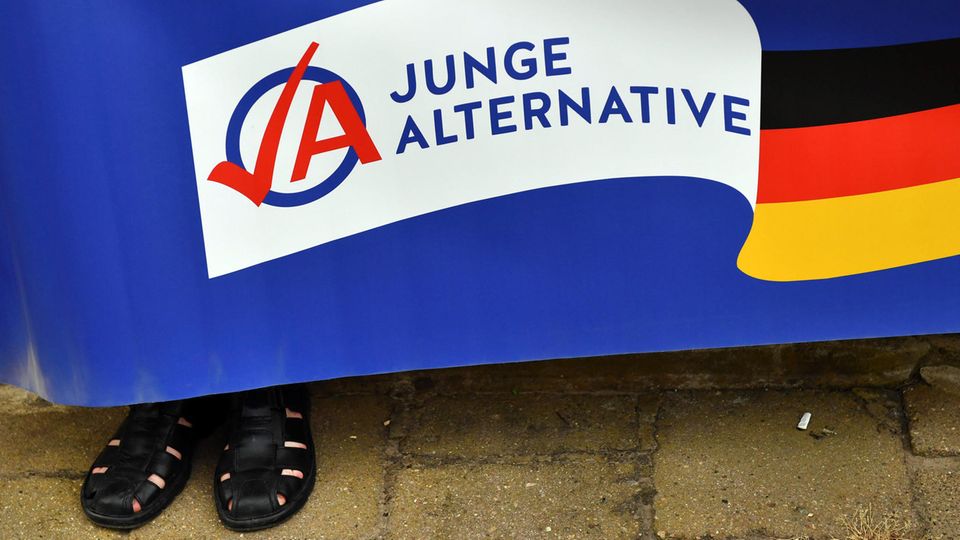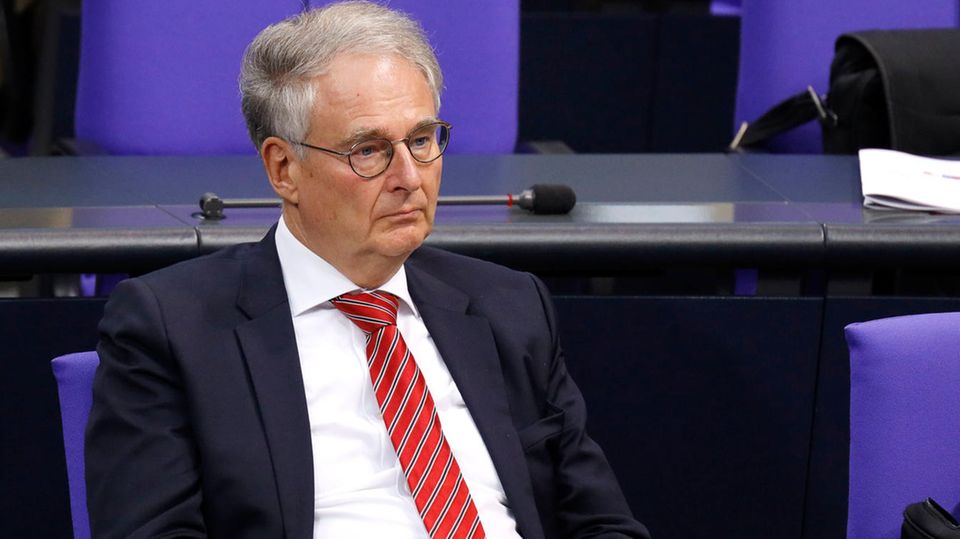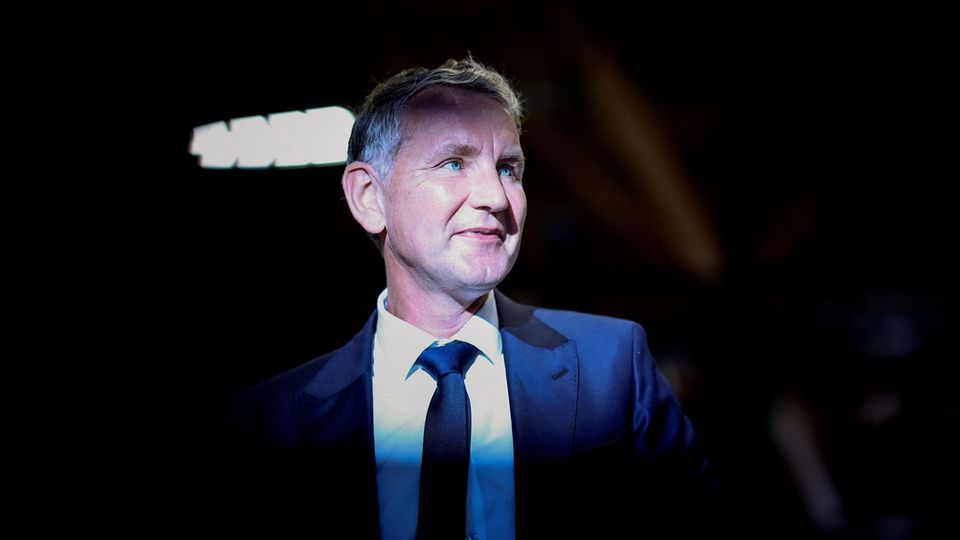analysis
Right-wing populists
Well, what now? The soft positions of the AfD
Alice Weidel and Tino Chrupalla, the party and parliamentary group leaders of the AfD
© Kay Nietfeld / DPA
Everyone wants it: to present the AfD with “content”. Unfortunately, it’s not that easy, because right-wing populists like to change their positions depending on the political weather. This is also shown by the recent “Dexit” initiative.
A noble plan.
It’s just not that easy to implement. The AfD’s positions turn out to be quite negotiable and sometimes interchangeable – if it seems useful in the political climate.
Dissolve, turn away, exit – what now?
The tide regarding the European Union has changed several times, most recently on Monday. Co-party leader Alice Weidel is now considering a “Dexit”, i.e. Germany leaving the European Union, if the AfD is unable to implement its desired reforms (less power for Brussels, more for the member states). Then it would be up to the citizens to vote on German EU membership in a referendum based on the British Brexit model, Weidel demanded in an interview with the Financial Times.
But such a referendum would not be possible at all in Germany. Referendums are not provided for in the Basic Law at the federal level. Especially since the AfD would first have to get into the power political position to initiate any reforms at the EU level. Apart from that, with this initiative the party has once again modified its opinion on the EU and German membership, apparently in the assumption that it would be able to score better points.
Shortly before their European election meeting in July last year, a version of the key motion became public. It called for “the orderly dissolution of the EU” and in its place a new European economic and interest community should be founded. The key proposal was written by the Federal Program Commission, which also includes the two party leaders Weidel and Tino Chrupalla. The media outcry was as big as expected. The passage was later deleted again, because it was an “editorial oversight”.. The European election meeting finally decided on a gradual move away from the EU, but not a “dissolution” or an exit.
The current “Dexit” push is, if you will, even a step backwards. In its election program for the 2021 federal election, the AfD had already described Germany’s exit from the EU as “necessary”. The only new thing is the idea of leaving, linked to a vote. Nevertheless, the question remains: Dissolve, turn away, leave – so what now?
Appeal to European reason
What can be considered certain is that the AfD has more contempt than trust for the European institutions. The EU skeptics attach surprisingly great importance to the investigation by a Brussels authority.
In their basic program The AfD supports a ban on the controversial weed killer glyphosate. It literally says: “The AfD expressly opposes the use of glyphosate in crop protection, which the WHO has classified as probably carcinogenic, until it has been proven to be harmless to humans and animals.”
This “well-founded” evidence provided for the AfD including the European Food Safety Authority (EFSA), which stated in a report in July last yearthat nothing stands in the way of re-approval of glyphosate. The EU authority does not see any critical problem areas in its analysis, but points to some data gaps and open questions. The report paved the way for the controversial re-approval of the drug at EU level for another ten years – also against the resistance of the federal government threatened damage to biodiversity and secure harvests complained.
Many farmers welcomed the EU’s decision to re-approve the controversial weed killer. And the AfD – yes, why not? – with you. Stephan Protschka, agricultural policy spokesman for the AfD parliamentary group, referred in a statement even “to our European partners” who would vote for an extension of approval. The federal government should not be a “wrong-way driver”. To put it bluntly: the AfD politician appealed to European common sense.
In November 2017, when the approval of glyphosate was last extended, Protschka and Weidel referred in a joint statement nor on “countless studies” that would point to the “significant risks of the use of glyphosate for humans, livestock and wild animals”. The press release was titled: “Weidel/Protschka: Glyphosate extension is a scandal.”
“The AfD generally rejects subsidies”
Did the AfD want to encroach on agriculture, which feels increasingly harassed by Brussels and Berlin? One could have gotten the same impression recently, when the farming problems culminated in days-long protest marches. The AfD, which likes to present itself as an advocate for the disadvantaged, expressed solidarity with the angry tractor drivers who took to the streets because of the traffic light agricultural policy. The gradual reduction in agricultural diesel subsidies was the last straw for many farmers.
In response, the AfD published a “Immediate program for agriculture”. In it, she called for an “immediate doubling” of the agricultural diesel refund – even though she clearly spoke out against state subsidies in her basic program. It says: “The AfD generally rejects subsidies.” They want the same rules for everyone, big and small, in every industry. The chapter written specifically for agriculture is entitled: “Less subsidies, more competition”.
How was Europe now?
So what does the AfD really want? Mario Voigt wants to fight this out with Björn Höcke in a speech duel. The date and location are to follow. The trigger was an interview statement by the Thuringian CDU state leader that Höcke wanted to “let Europe die.” Voigt and the AfD chairman in the Free State then engaged in a war of words on X (formerly: Twitter). Finally, both agreed to have a personal exchange of blows.
AfD man Höcke had Voigt asked to correct his “false statement” that he wanted to let Europe die. At the AfD European election meeting in July last year, Höcke said, captured in image and sound: “This EU must die so that the true Europe can live. I am convinced of that.”





